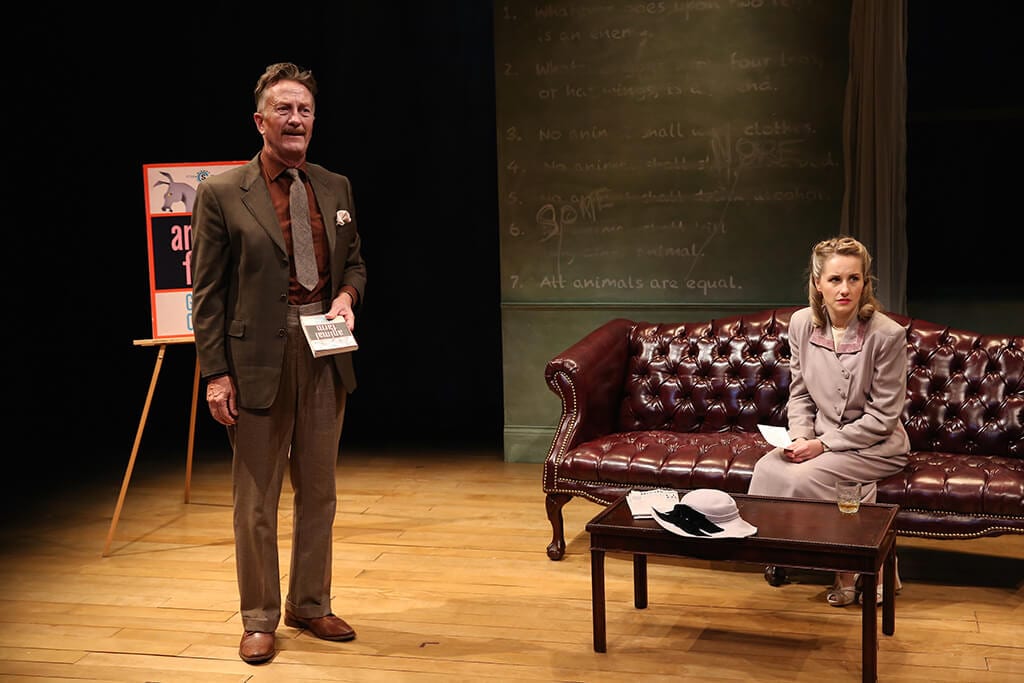My main concern with any show based around a famous figure from the past is that that is the one person we know for sure will not be in attendance. Gratefully, I did leave this show feeling I had spent an evening in the presence of George Orwell, or rather Eric Blair, which, as we are frequently reminded, was the great mid-twentieth century English writer’s real name. Jamie Horton as Orwell/Blair makes his remarkable New York City debut as a mature actor here, fully inhabiting the principled, sincere former prep school scholarship boy, with the supple intellectual clarity we recognize from the page and the conviction that what he writes matters. Oh well, he drinks a bit, and is a bit wobbly in the romantic department, but nothing stands in the way of the genuinely satisfying hagiography.
The play itself is a rather slight dramatic vehicle designed to bring Orwell to us, tracing a fictionalized relationship between him and a young female publicist, Carlotta Morrison, assigned to guide him on a (fictional) American speaking tour for his new book, the now iconic anti-Stalinist allegory Animal Farm. We don’t learn much more about Orwell’s life than is commonly known–the pseudonym, the memorable arguments for avoiding cliches in writing and thought, that perhaps his best work is actually the less familiar Down and Out in Paris and London, the vivid memoir of his adventures among the impoverished.
Playwright Sutton slips us in and out of seeing the pair preparing for the talks and Orwell actually delivering them. The central conflict is about his drive to explain to his Cold War American audiences why he, their favorite anti-Communist literary champion, is paradoxically a committed socialist, against the protestations of the otherwise admiring publicist who argues for a lighter touch on the lefty stuff. Along the way, we get sensitively rendered insights into why the Spanish Civil War was such a critical cause for intellectual activists of the time, how deep and lasting were the privations of post-war Europe–including Great Britain–and why the political landscape there evolved so differently than in the U.S. There’s also a flirtation dynamic with the publicist.
Youthful Broadway veteran De Waal does a wonderful job with the fairly thin material comprising her role. We get a contrastingly energetic, healthy, well fed American, spirited in her admiration for Orwell and in her insistence that he moderate his expectations of how understanding the American audiences can be about his socialist views. She is a somewhat uncommon figure for the time, a committed professional woman proudly using her Vassar education, strongly defending her opinions and insisting that she should matter to Orwell as much as he to her.
Able lighting and sound design cue us when he moves between preparation and talks, a trickily porous transition. The rather homely set is enough to serve the purpose and absolutely no more. We don’t get a very specific feeling of being on the road or in any particular places, which might have added some dimension. But it doesn’t matter very much when we get to hear Orwell himself masterfully summarize the plot and significance of Animal Farm. A high school boy inside me is still cheering.

